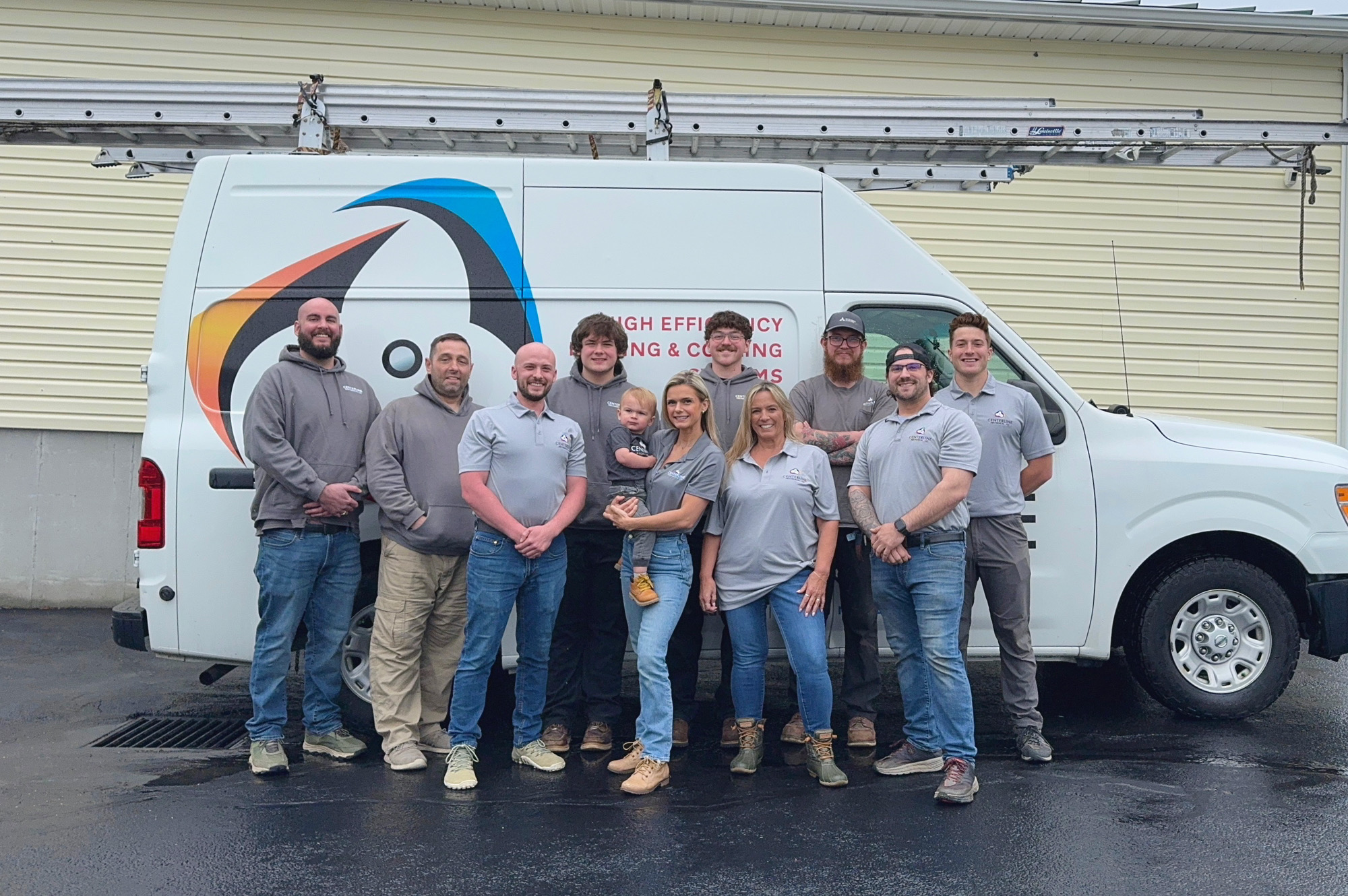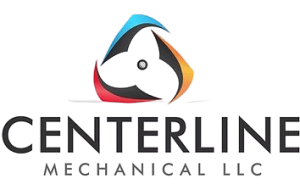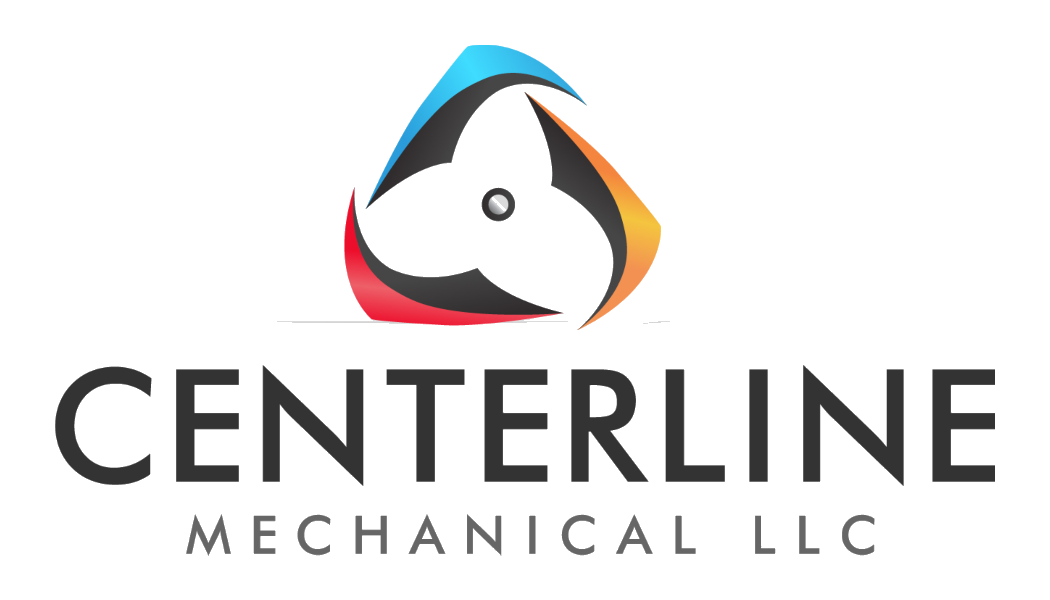Is it time to replace your furnace? A simple checklist for Hopedale homeowners
If you’re unsure whether to repair or replace, use this quick checklist – each item by itself is a reason to think about replacement; several together mean you should plan to replace soon.
- It’s getting old (12–15+ years) or needs repairs often – Older furnaces lose efficiency and parts become harder to find. If you’re calling for big fixes more than once a year, replacement is usually the smarter move.
- Energy bills keep rising with no change in use – Newer, high-efficiency furnaces use noticeably less fuel. If your monthly heating bill climbs while behavior hasn’t changed, an upgrade can pay back over a few years.
- A major part failed (heat exchanger, burner, or control board) – Big components are expensive. If a single repair will cost a large fraction of a new furnace, replacement is often the better investment.
- Some rooms are cold or the system can’t keep up on very cold nights – That’s usually a sizing or distribution issue. A properly sized new furnace (and a quick duct check) solves persistent cold rooms.
- The system short-cycles (turns on and off rapidly) or runs loudly – Short-cycling wears parts fast and raises bills. Loud banging, kettling, or persistent rattles are signs something serious is happening.
- There are safety warning signs (CO alarm, rusted flue, flue smells, or cracked heat exchanger) – Any sign of combustion or venting trouble is an immediate red flag – treat it as urgent and consider replacement for safety.
A simple rule we use
Repair if the unit is under ~12 years old and the problem is a single, low-cost part. Replace if the furnace is older (12–15+ years), needs multiple major repairs, or has a safety issue. If a repair will cost more than about half the price of a new, correctly sized system, that’s a good tipping point to replace.
What we do on a site visit (so you know what to expect)
- Inspect the furnace, vents, and flue.
- Check pressures, combustion (if gas), and thermostat operation.
- Run a quick Manual J heat-load check if sizing looks questionable.
- Give you a written repair estimate and a clear replacement quote with options and payback notes.
If you want, we’ll show you the numbers side-by-side so you can decide with confidence. Call Centerline at (508) 310-0955 or book a no-pressure estimate and we’ll come out to Hopedale and walk through your options.
How much does a new furnace actually cost in Hopedale?
A short, useful answer up front: most complete furnace replacements in our area fall in the $4,000–$10,000 range, with many mid-range gas swaps clustering around $5,000–$8,000. That covers the new furnace plus normal labor for a straight swap – your final price depends on the specifics below.
Cost ranges by furnace type
- Natural gas furnaces (most common): roughly $3,800–$10,000 installed. High-end, modulating models can run toward $12,000.
- Oil furnaces / conversions: variable depending on existing equipment and venting; expect overlap with gas ranges when tanks or chimney work are involved.
- Electric furnaces / packaged electric units: typically $2,000–$7,000 installed, depending on wiring and whether you pair with a heat-pump option.
Typical add-ons that increase the price
- Ductwork repair or replacement: $500–$5,000+ depending on scope.
- New indoor coil / evaporator (for matched AC/heat-pump): several hundred to $1,500+.
- Gas-line upgrades or new gas run: $300–$1,200 depending on distance and complexity.
- Electrical upgrades / new circuit or panel work: $500–$2,500+.
- Thermostat, zoning, or IAQ devices: $100–$2,000 depending on the item.
- Haul-away & disposal: usually $50–$300.
Permits & inspections in Hopedale
Most furnace installs require plumbing/gas permits and town inspections. Permit fees are generally modest; contractors usually file and coordinate inspections. Skipping permits risks fines, re-inspection charges, and warranty problems, so plan a little time and cost for permitting in your budget.
Rebates, financing, warranties & long-term value
- Rebates & incentives – Massachusetts programs and local utility incentives can cut your out-of-pocket cost. Instant rebates and efficiency incentives are common for qualifying upgrades – check available programs before you decide so you see the true net cost.
- Financing – spread the cost – Dealers commonly offer financing, including 0% promotional plans or fixed-rate loans. When comparing offers, ask for a sample monthly payment, the APR, loan term, any fees, and whether financing covers permits and accessory work.
- Warranties – two layers to confirm – New furnaces have a manufacturer warranty (heat exchanger and parts) and installers usually offer a workmanship warranty. Get both in writing and register the manufacturer warranty if required.
- Long-term value – what the extra cost buys – Higher-efficiency models cost more up front but usually lower annual fuel bills, improve comfort, and can be a selling point at resale. Ask your contractor for an estimated annual energy savings and a simple payback calculation so you can judge value.
How to get an accurate, no-surprises quote
- Book a site visit for a Manual J check — have a technician measure the home and run a proper heat-load calculation before you pick a unit. Getting the size right keeps rooms evenly heated and stops the furnace from cycling on and off all day.
- Request a clear, written estimate — ask for a line-by-line quote that lists parts, labor, permits, and any extras. It’s easier to compare bids and there’s no confusion about what’s included.
- Compare standard and high-efficiency options — look at both side by side. A high-efficiency model usually costs more up front but can trim fuel use every winter. Have the tech show the estimated annual savings and how many seasons it takes to break even.
- Check rebates and financing early — find out what rebates or 0 percent financing plans you qualify for before you decide on equipment. Knowing those numbers up front gives you the real total, not just the sticker price, and can make a better system fit your budget.
Furnace Installation Process in Hopedale
- Pre-visit – We take a quick look at the setup, confirm the fuel type, and note any access issues. Then we set a time to come out and size the new system properly.
- On-site sizing & prep – During the visit, we measure rooms, check duct runs, and run a Manual J heat-load test. That tells us exactly what size furnace the house needs—no guessing or overselling.
- Permits & scheduling – Once you give the go-ahead, we pull the town permits and line up the plumbing, gas, and building inspections so everything passes the first time.
- Install day – First thing we do is cover the floors and clear a path. The old furnace comes out, the new one gets set, leveled, and tied into gas, power, venting, and ductwork. Once everything’s hooked up, we fire it up and make sure it’s running the way it should.
- Commissioning & hand-off – After the install, we dial in the thermostat and double-check airflow and combustion numbers. If anything needs a tweak, we handle it right then. Before we leave, we show you the filter location and a couple of quick upkeep tips.
- Follow-up & paperwork – A few days later, we make sure inspections are cleared and the warranty’s registered. You’ll get a short summary of the work and who to call if you ever need service.
- How long it takes – Most straightforward swaps wrap up in a single day. If we’re adding ducts, fixing venting, or doing electrical upgrades, figure on a day or two more.
How to prepare your home
- Clear a path to the mechanical room and move fragile items.
- Provide outdoor access if the unit is in a basement and secure pets/kids.
- If available, have the old unit’s model/serial on hand to speed up ordering or compatibility checks.
FAQs – Hopedale Furnace Installation
Expect a typical installed range of $4,000–$10,000, with many mid-range gas swaps around $5,000–$8,000. Don’t treat that as a price – treat it as a planning band. What really moves the number: furnace type (gas, oil, electric), AFUE (efficiency), whether you need a new indoor coil or ducts, gas or electrical work, and local permit/inspection time.
Short answer: No for permanent forced-air or gas systems. Furnace installs involve gas piping, combustion/venting, sealed electrical work, and code inspections – mistakes can be dangerous and can void warranties or insurance.
Things you can reasonably do: change filters, replace thermostat batteries, check circuit breakers, and clear air registers. If you smell gas or suspect CO, evacuate and call emergency services and a licensed pro immediately.
Most furnaces built today hold up about 15 to 20 years when they’re looked after. Age isn’t the only factor, though — run time and upkeep matter just as much. A quick yearly service, clean filters, and fixing small issues before they snowball can easily buy you a few extra years.
Yes — Hopedale requires building and gas/plumbing permits for a new furnace. Your installer should handle all that, including scheduling inspections, but it’s smart to double-check. Having the paperwork in order keeps everything code-compliant and protects your warranty.
Most of the time, yes. A newer, high-efficiency model burns less fuel to do the same job, so bills usually drop. How much you save depends on your current system, fuel prices, and how well the new furnace is sized and installed. Ask your contractor to show the estimated yearly savings and the payback period. If you qualify for Mass Save rebates or 0% HEAT Loan financing, the upgrade often pays for itself faster than people expect.
Hopedale and nearby towns we serve
We install furnaces in Hopedale, Milford, Mendon, Upton, Millbury, Medway – and surrounding communities. If you’re just outside this list, ask – we likely service your neighborhood.
Looking for more than just a furnace install? We also offer complete HVAC system installation across Hopedale and nearby towns.
Thinking about a new furnace? Call us today to schedule a visit. We’ll size the system properly, install it cleanly, and leave you with reliable comfort when the weather gets cold.
Call (508) 310-0955
Discuss your project with our experts and receive a same-day estimate window, so you’ll know exactly what to expect before we begin.
Call Now
Licensing and compliance
Work is performed by a licensed HVAC contractor. Massachusetts license number: 11040. We follow mechanical and electrical codes, secure permits when required, and carry proper insurance. Please operate equipment as instructed and schedule routine maintenance to keep performance steady.




